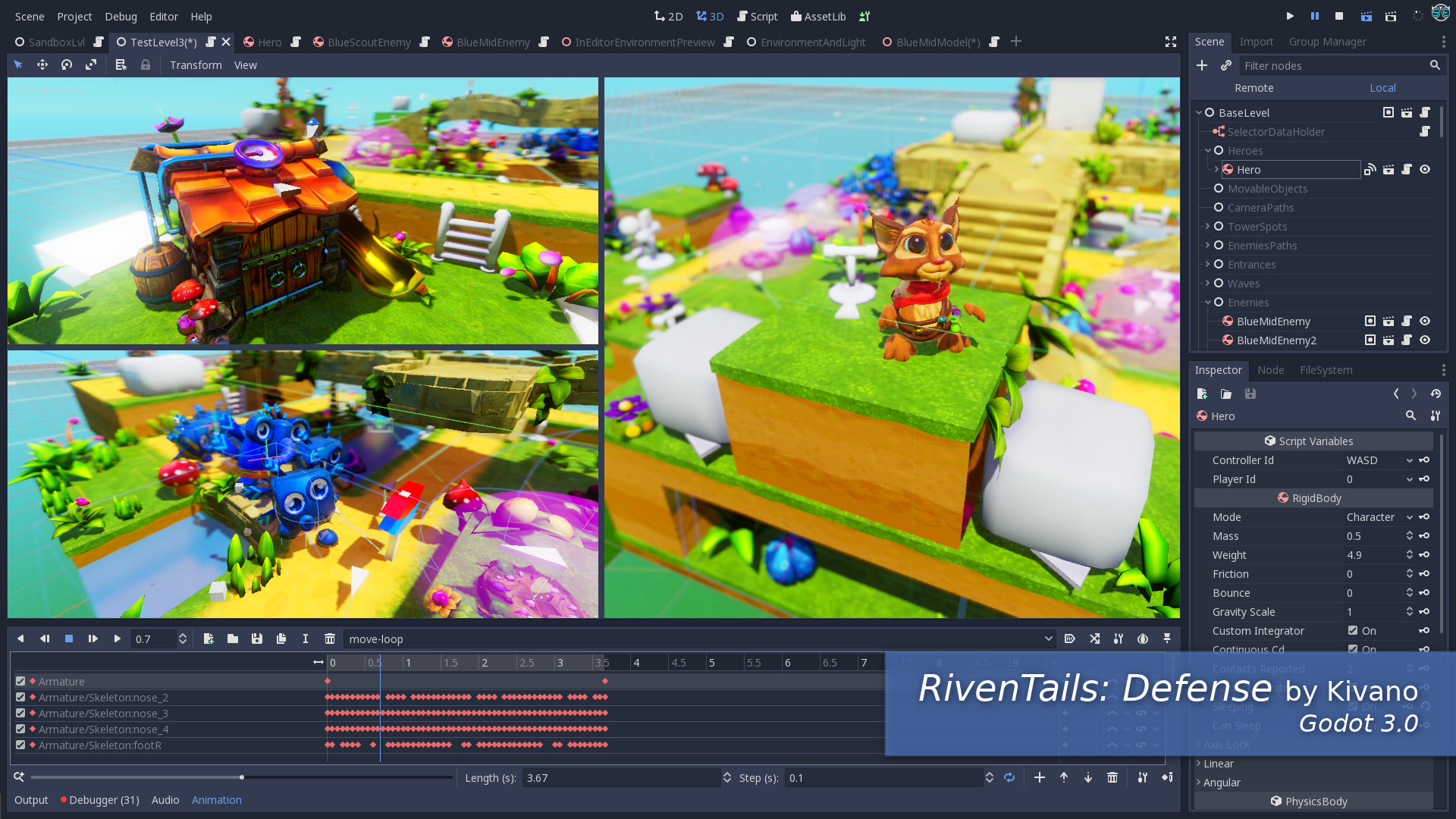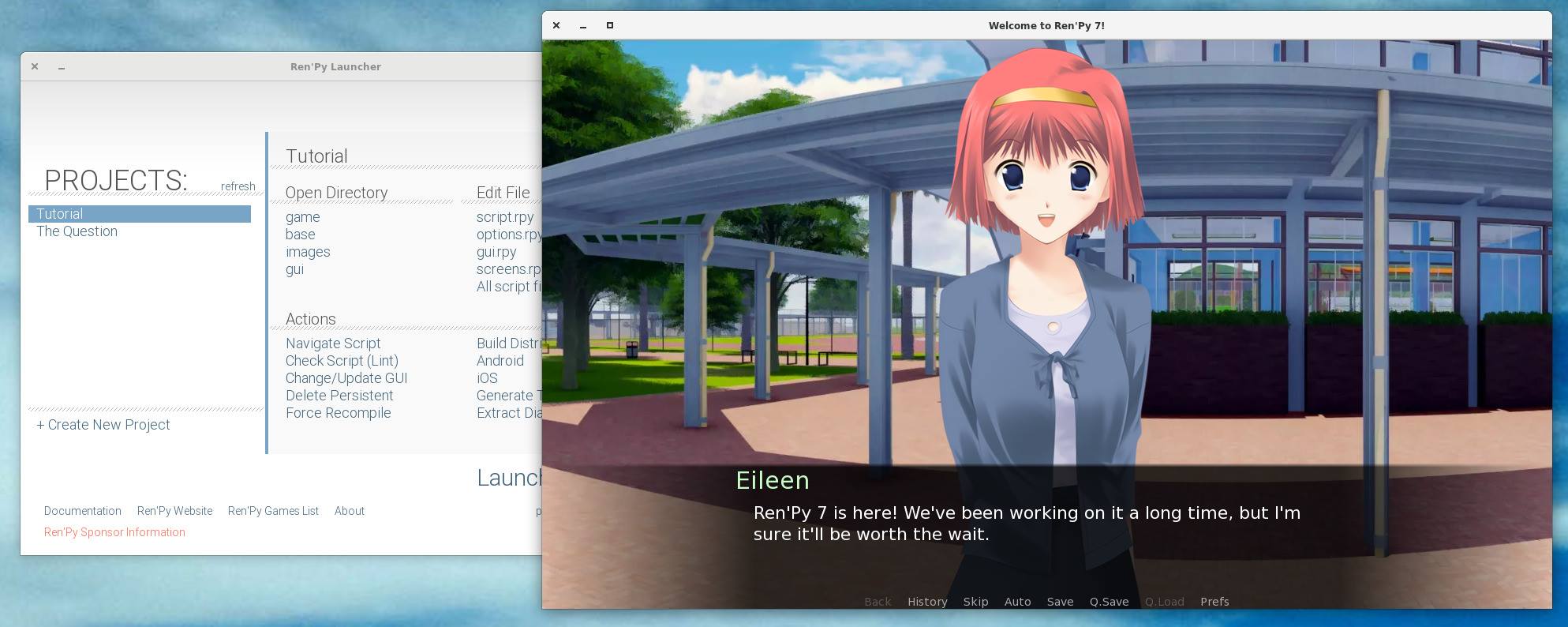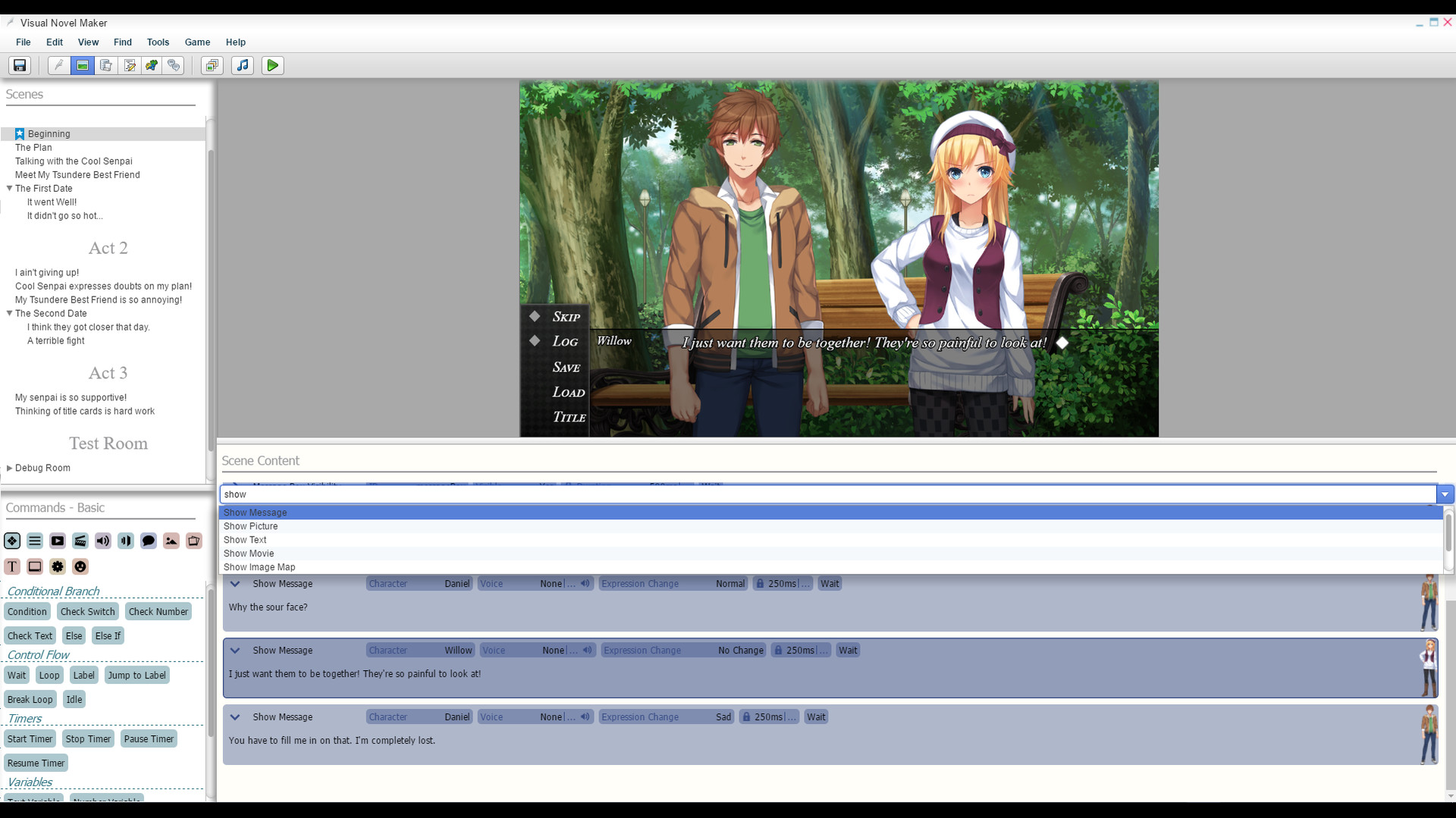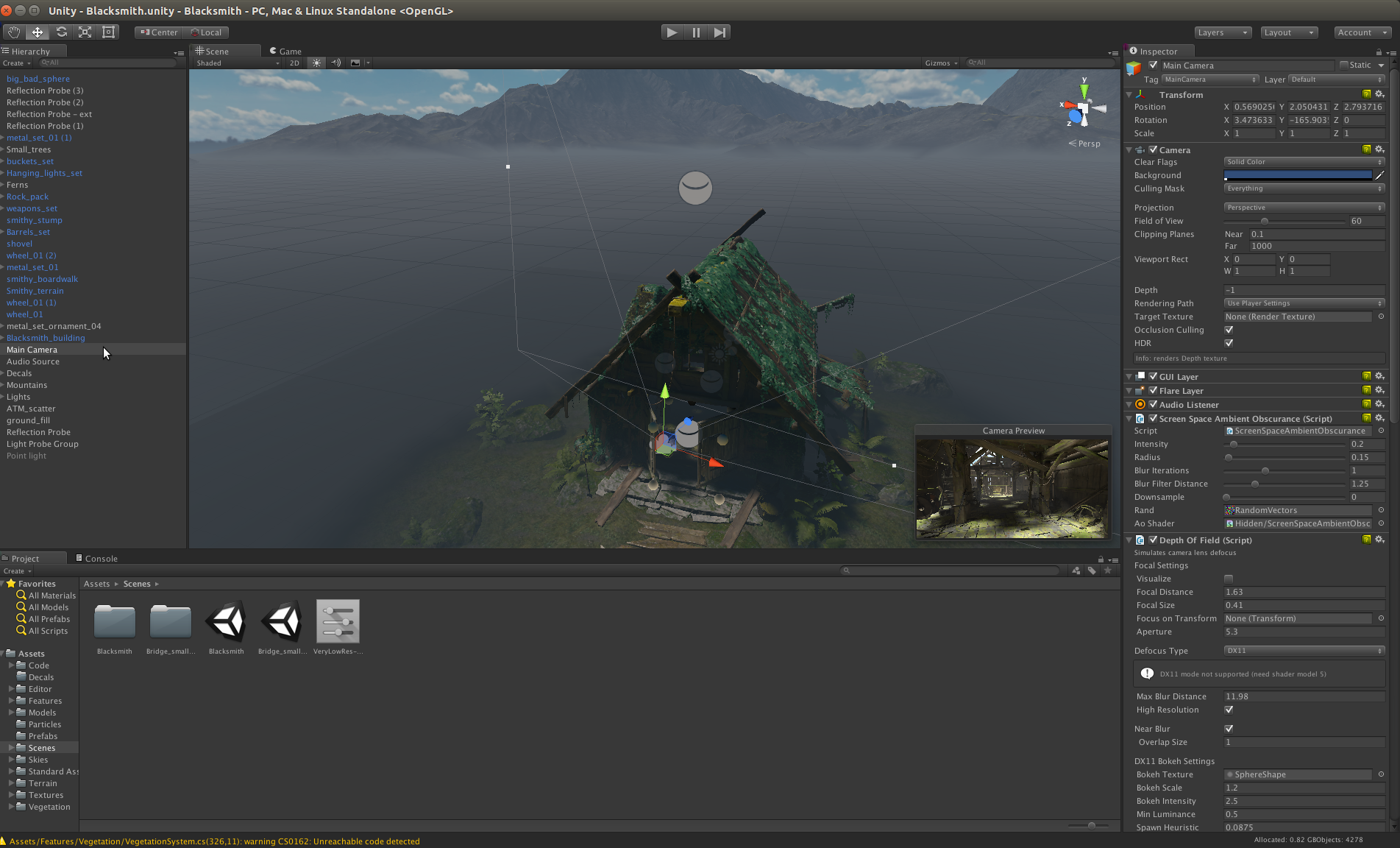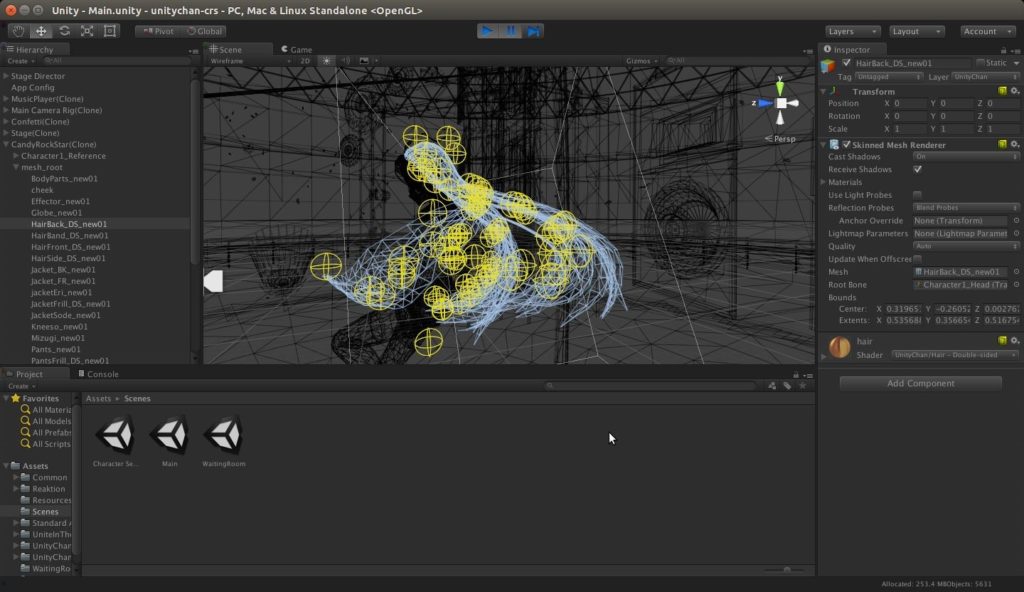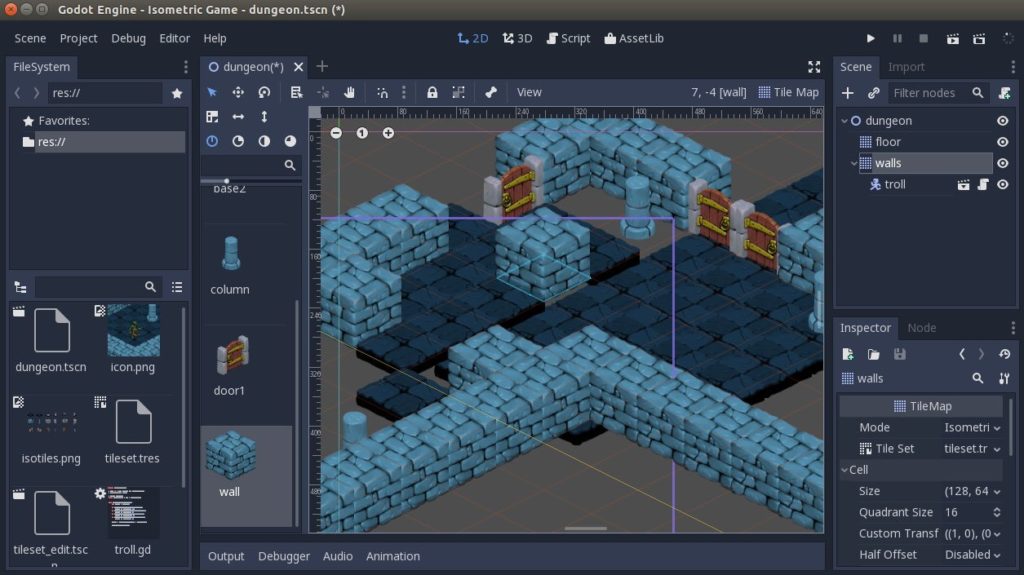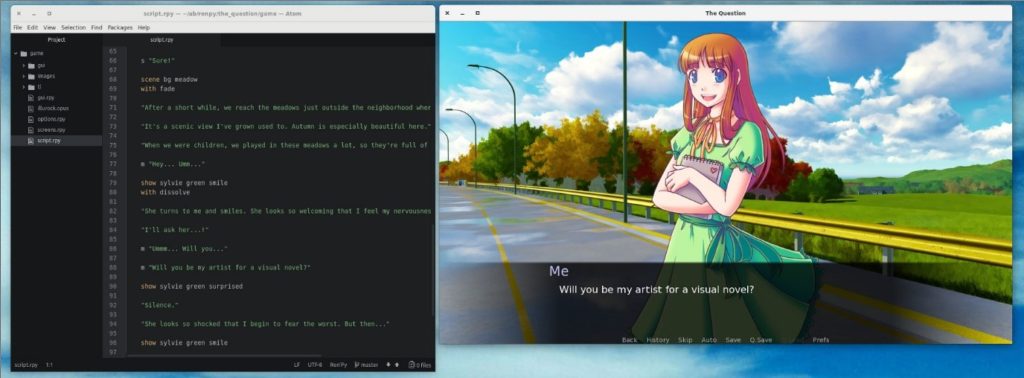5 инструментов для создания игр в Linux
Создание игр, это намного менее утомительно, чем может показаться. И пускай вы не собираетесь переходить от полного отсутствия опыта к созданию следующего Grand Theft Auto (GTA), на самом деле, никогда не было так легко начать создавать игры. Инструменты и ресурсы для разработки игр становятся все более доступными для любого, кто захочет этим заняться, даже если у них нет опыта программирования. Более того, почти все эти инструменты доступны бесплатно.
Чтобы облегчить задачу тем, кто хочет начать создавать игры, мы составили список из 5 игровых движков / редакторов. Некоторые, предназначены для определенного жанра игры и могут выступить, в качестве, невероятно легкого старта для новичков. Другие являются профессиональными инструментами разработки для игр AAA, но они по сути бесплатны для любителей и по-прежнему предлагают множество средств обучения, которые помогут тем, у кого ограниченный опыт программирования.
Конечно, в разработку игр входит множество вещей – музыка, анимация, звук, письмо, текстурирование, моделирование и т. д. – однако, выбранный вами движок игры окажет наибольшее влияние на то, какие игры вы сможете делать. Если у вас есть предложения относительно других движков, программного обеспечения или средств обучения для других аспектов разработки, напишите о них в комментариях.
GDEVELOP
2D-движок с открытым исходным кодом, разработанный для простоты использования.
- Предназначено для: 2D игр
- Редактор доступен для: Windows, MacOS, Linux и web
- Язык скриптов / разметки: Нет, использует интерфейс перетаскивания.
- Стоимость: Бесплатно
- Средства обучения: В вики GDevelop доступно множество руководств и учебных пособий, а также более 80 примеров файлов о том, как создавать игры определенных жанров и особые игровые функции.
- Веб-сайт:https://gdevelop-app.com/
- Начало работы:http://wiki.compilgames.net/doku.php/gdevelop5/getting_started
GODOT
2D и 3D игровой движок с открытым исходным кодом, разработанный для того, чтобы быть мощным, простым в освоении и для совместной работы команды.
- Предназначено для: 2D и 3D игр
- Редактор доступен для: Windows, MacOS и Linux
- Язык скриптов / разметки: GDScript, C# и визуальные сценарии.
- Стоимость: Бесплатно
- Инструменты обучения: У Godot есть обширное пошаговое руководство по использованию их редактора, а также куча бесплатных текстовых руководств, охватывающих более конкретные аспекты, такие как реализация виртуальной реальности, использование скелетов для 2D-анимации и создание процедурной геометрии.
- Веб-сайт:https://godotengine.org/
- Начало работы:https://docs.godotengine.org/en/stable/getting_started/step_by_step/index.html
REN’PY
Новый, визуальный игровой движок с открытым исходным кодом. Он использовался для таких игр, как Doki Doki Literature Club, Butterfly Soup и One Night, Hot Springs.
- Предназначен для: Визуальных романов
- Редактор доступен для: Windows, MacOS и Linux
- Язык сценариев / разметки: язык сценариев Ren’Py и Python
- Стоимость: Бесплатно
- Инструменты обучения: Существует бесплатный текстовый обзор того, как сделать простую игру в Ren’Py и дополнительные текстовые руководства для более специфической настройки.
- Веб-сайт:https://www.renpy.org/
- Начало работы:https://www.renpy.org/doc/html/quickstart.html
VN MAKER
Ещё один игровой движок, разработанный специально для создания визуальных романов без необходимости уметь программировать. Это коммерческий продукт, разработанный Degica.
- Предназначен для: Визуальных романов
- Редактор доступен для: Windows, MacOS и Linux
- Язык сценариев / разметки: JavaScript и CoffeeScript
- Стоимость: $ 69,99
- Инструменты обучения: Есть бесплатное руководство, охватывающее широкий спектр тем, включая основы редактора, как структурировать историю, которую вы пишете, как настроить визуальный роман без сценариев, а также отдельное руководство только для сценариев плюс документация.
- Сайт:http://visualnovelmaker.com/
- Начало работы:https://asset.visualnovelmaker.com/help/index.htm#t=Beginner_s_Guide.htm
UNITY
Кроссплатформенный коммерческий игровой движок, разработанный Unity Technologies. Он использовался для таких игр, как Untitled Goose Game, Ori и Will of the Wisps и Hollow Knight.
- Предназначен для: 2D и 3D игр.
- Редактор доступен для: Windows, MacOS и Linux
- Язык сценариев / разметки: C#
- Стоимость: Бесплатно для студентов и любителей для личного пользования, а также для небольших компаний, которые приносят менее 100 000 долларов в год. Помимо этого, существуют годовые планы, начинающиеся с 399 долларов в год или 40 долларов в месяц.
- Инструменты обучения: Unity предоставляет некоторые бесплатные ресурсы, чтобы помочь новичкам разобраться в движке. Но в рамках программы Unity Learn Premium она предоставляет гораздо больше возможностей, включая классы, учебные пособия и даже сертификаты. Unity Learn Premium в настоящее время бесплатна до 10 июня 2020 года, но обычно составляет 15 долларов в месяц.
- Веб-сайт:https://unity.com/
- Начало работы:https://learn.unity.com/tutorial/create-your-first-unity-project
Источник
How to Develop a Game on Linux
This article is aimed at Linux users who would like to become game developers but don’t know where to start, introducing some of the most popular game engines that Linux game developers can use to turn their ideas into full-fledged games compatible with major operating systems—not just Linux.
Why Develop a Game on Linux?
If you’re a long-term Linux user, you can answer this question easily since it makes sense to develop a game on an operating system you use on a daily basis. But even if your experience with Linux is limited, there are several reasons why it’s the right choice for aspiring game developers:
- It’s free and open-source: When developing a game on Linux, you don’t need to worry about licensing and software fees. The operating system is free and open-source, and so are the applications that ship with it.
- Low-level control: Linux lets you fully customize how it looks, feels, and works. If there’s something bothering you about your distribution of choice, you can simply change it and be as productive as possible.
- Helpful community: The Linux community is made up of geeks and enthusiastic hobbyists who are always willing to lend a helping hand. Many Linux users have interest in programming and game development, so you’re always guaranteed to find someone knowledgeable willing to help you.
- Native programming tools: Included in most Linux distributions is the GNU toolchain, which provides a set of native programming tools for software development. Additional development tools and libraries can be easily installed using a package manager.
- Low system resource requirements: There are many Linux distributions with low system resource requirements. Such distributions make it possible to develop games even on aging computers that would struggle to run Windows or macOS.
Getting Started with Game Development on Linux
As a game developer, you can take two different approaches when developing a game: build everything from scratch or use existing development tools and resources to build the framework of your game.
If you’re reading this article, it means that you have limited or no experience with game development. In that case, we highly recommend you choose the latter approach and pick one of the five game engines listed below.
 | A game engine provides the necessary set of features to allow you to build games quickly and efficiently. It takes care of everything from physics to input to scripting and artificial intelligence, so you can spend more time creating your game and less time reinventing the wheel. |
There are dozens of game engines for Linux, each offering different features and technologies. Let’s take a look at five popular Linux game engines that you can use to create anything from a 3D shooter to a text adventure.
Unity
Suitable for making: 3D & 2D games of all genres
Unity is the most popular game engine in the world. It works on Linux, Windows, and macOS, and you can use it to create 2D and 3D multiplatform games. Some of the most popular games made with Unity include Escape from Tarkov, Monument Valley, Hollow Knight, and Cuphead.
The main programming language supported by Unity is C#, which was developed by Microsoft as a general-purpose, multi-paradigm programming language. Most Linux developers who use Unity write code in Visual Studio Code (VS Code).
Because of how immensely powerful Unity is, getting started with it can be a challenge. Fortunately, there’s a wealth of learning resources available online, including YouTube video courses and community tutorials.
Godot
Suitable for making: 3D & 2D games of all genres
Godot is a versatile open-source game engine suitable for making both 3D and 2D games. It was first released in 2014, and it has already been used to create several popular games, including Project Kat, Genomix, Ludum Creare, Lurking in the Dark, and Keep IT Fed.
Because Godot is completely free and open-source, licensed under the permissive MIT license, you don’t need to worry about royalties or subscription fees. Even if you use it to create a hit AAA game, your creation will be 100% yours to the last line of code.
To get started with Godot, we recommend you read the official documentation, which is available in multiple languages. The getting started section provides a novice-friendly introduction to all important concepts.
RPG Maker
Suitable for making: role-playing games
If you love role-playing games (especially old-school JRPGs like The Legend of Zelda or Final Fantasy) and would like to create your own, RPG Maker is an excellent game engine for the task. This engine was created specifically to simplify the development of RPGs by handling everything from crafting to inventory management to quests.
There’s a chance that you’ve played at least one RPG made with RPG Maker, such as To the Moon, Finding Paradise, Corpse Party, LISA, or Skyborn. The latest version of this game engine, RPG Maker MV, runs flawlessly on Linux, and you can even download it through Stream.
If you decide to create a game in RPG Maker, you may want to purchase professionally designed tilesets, characters, animations, and music from the RPG Maker online store. Of course, you can also create everything yourself and give your RPG a unique look.
Ren’Py
Suitable for making: visual novels
Ren’Py is a game engine for visual novels. It was used to make games like Doki Doki Literature Club!, Analogue: A Hate Story, Long Live the Queen, Dissolving, and Butterfly Soup. Games made with Ren’Py combine an engaging story with captivating visuals to create games that place storytelling above gameplay.
Ren’Py supports its own scripting language as well as Python scripts, and you can freely combine them to create everything from branching stories to complex simulation games. The quickstart does a great job of walking new Ren’Py users through the process of creating a simple game, so make sure to check it out.
Twine
Suitable for making: text adventures
Twine is an open-source game engine for interactive stories. To create a game with this engine, you don’t need to write any code whatsoever. All you need is an idea for a story and the ability to tell it in a captivating way.
That said, Twine games can be extended with variables, conditional logic, images, CSS, and even JavaScript, so you really have nearly limitless creative options. Another thing that’s great about Twine is the fact that the games created with it are published directly to HTML and playable in any modern web browser.
Conclusion
Developing a game on Linux isn’t any more difficult than developing a game on Windows or macOS. In fact, Linux users benefit from easy access to countless native and third-party programming tools, most of which are free and open-source. To embark on your own Linux game development journey, all you need to do is pick a suitable engine and let your creativity flow. Some Linux game engines require no programming skills whatsoever, allowing anyone to experience the magic of game development without having to first spend hundreds of hours buried in books.
About the author
David Morelo
David Morelo is a professional content writer in the technology niche, covering everything from consumer products to emerging technologies and their cross-industry application
Источник


